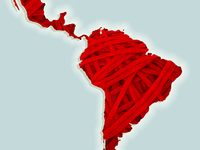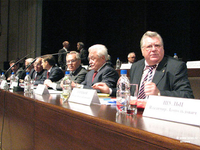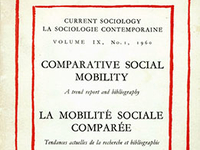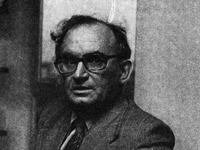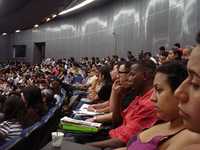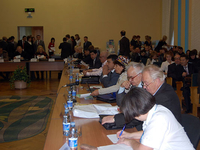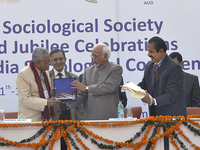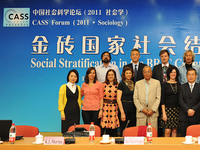GD 2.3 - February 2012

Global Dialogue is available in multiple languages!
Select the language to download the issue.
Editors:
Michael Burawoy.
Associate Editor:
Margaret Abraham, Tina Uys, Raquel Sosa, Jennifer Platt, Robert Van Krieken.
Managing Editors:
Lola Busuttil, August Bagà.
Media Consultant:
Annie Lin, José Reguera.
Consulting Editors:
Izabela Barlinska, Louis Chauvel, Dilek Cindoglu, Tom Dwyer, Jan Fritz, Sari Hanafi , Jaime Jiménez, Habibul Khondker, Simon Mapadimeng, Ishwar Modi, Nikita Pokrovsky, Emma Porio, Yoshimichi Sato, Vineeta Sinha, Benjamin Tejerina, Chin-Chun Yi, Elena Zdravomyslova.
REGIONAL EDITORS
Arab World:Sari Hanafi, Mounir Saidani.
Brazil: Gustavo Taniguti, Juliana Tonche, Pedro Mancini, Fabio Silva Tsunoda, Dmitri Cerboncini Fernandes, Andreza Galli, Renata Barreto Pretulan.
Colombia: María José Álvarez Rivadulla, Sebastián Villamizar Santamaría, Andrés Castro Araújo.
India: Ishwar Modi, Rajiv Gupta, Rashmi Jain, Uday Singh.
Iran: Reyhaneh Javadi, Shahrad Shahvand, Fatemeh Moghaddasi, Saghar Bozorgi, Jalal Karimian.
Japan: Kazuhisa Nishihara, Mari Shiba, Yoshiya Shiotani, Kousuke Himeno, Tomohiro Takami, Yutaka Iwadate, Kazuhiro Ikeda, Yu Fukuda, Michiko Sambe, Takako Sato.
Poland: Mikołaj Mierzejewski, Anna Piekutowska, Karolina Mikołajewska, Jakub Rozenbaum, Tomasz Piątek, Julia Legat, Mikołaj Niziński, Anna Rzeźnik, Konrad Siemaszko, Patrycja Pendrakowska, Wojtek Perchuć, Adam Mueller.
Russia: Elena Zdravomyslova, Elena Nikoforova, Asja Voronkova.
Taiwan: Jing-Mao Ho.
Ukraine: Svitlana Khutka.
GD 2.3 - February 2012
Editorial
Social Justice and Democratization
Buenos Aires is a particularly appropriate stage for the forthcoming ISA Forum with its theme “Social Justice and Democratization.” As Alberto Bialakowsky and Alicia Palermo, President and co-President of the Local Organizing Committee, and Henrique Martins, President of ALAS (Latin American Sociological Association), write in this issue of Global Dialogue, not only has Latin America cultivated progressive movements for social justice and democracy but its sociologists have played a heroic part in those movements. In so doing, they generated a dynamic and distinctive regional sociology that will be showcased at the Forum.
“Social Justice and Democratization” is appropriate not just for the place but also for the historic moment. Samia Mehrez opens this issue of Global Dialogue with reflections on the anniversary of Egypt’s “January Revolution” – dwelling on its multiple meanings that have circulated within Egypt and abroad. Cairo’s Tahrir has indeed inspired a year-long global wave of social movements upholding social justice and democracy. Seemingly from nowhere, movements fearlessly took on dictatorships in Tunisia, Egypt, Libya, Syria, Yemen, igniting European movements against fiscal austerity, converging with Occupy Wall Street spreading through the US and boomeranging back across the world. Nor should we forget the massive protests in Israel, in Chile, and most recently in Russia. The grievances may be national, but the movement is global.
These are not so much movements of the exploited, though they have joined in, but of the dispossessed – those whose existence is defined by precarity. They are movements of students or ex-students or more broadly of youth, dispossessed of their future, of opportunities to utilize their skills and knowledge. They also include movements of peasants dispossessed of their land or water – in China, India, the Philippines, Brazil, Bolivia and elsewhere. Occupy movements have also come up against urban enclosures, battling the police to hold onto supposedly public spaces.
While Occupy movements pose a symbolic challenge to capitalism, they present a real challenge to sociology. Studies of inequality can no longer confine themselves to the 99% but they must pay close attention to the 1%. We cannot limit ourselves to income but must study wealth, and how the 1% exploit the 99% through, for example, various forms of debt servitude. Political sociology has to move beyond a focus on electoral democracy that has proven incapable of countering social injustice, incapable of regulating finance capital. The Occupy movements have defined themselves by their participatory democracy. Here too Latin America has been the pioneer. Structural adjustment policies that destroyed economies in the 1990s, led to a decade of counter-movements, not least the Argentinean occupations of factories and public spaces. Just another reason why Buenos Aires is the place to be, August 1-4, 2012.
Michael Burawoy, editor of Global Dialogue
Global Dialogue can be found in multiple languages.
Submissions should be sent to globaldialogue@isa-sociology.org.




